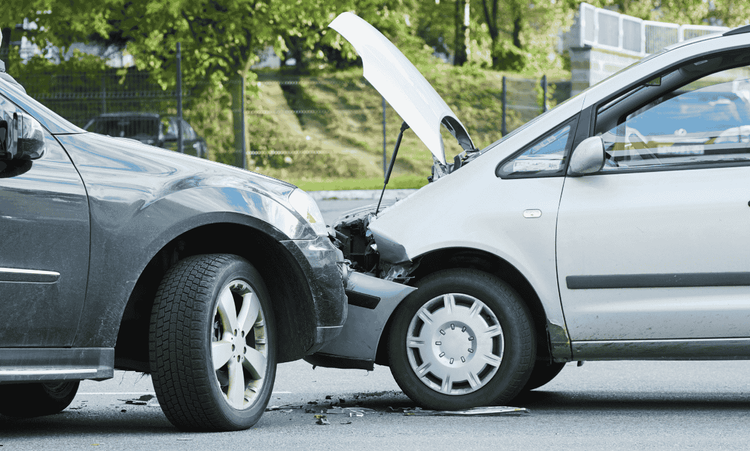Car accidents don’t wait for the perfect time. They happen suddenly, often when you least expect it. One moment you’re headed to work or coming home from a grocery run—then boom. You’re jolted, your heart’s racing, and everything feels like it’s moving in slow motion. After the dust settles, you’re left with questions: Who’s at fault? Who pays for the damage? Do I need a lawyer?
Some accidents are simple. Others become legal nightmares. If you’re unsure about your situation, this article breaks down when to hire an attorney after a car accident—no fluff, just facts.
If You Have Serious Injuries
Medical expenses can bury you fast
Serious injuries are more than just a few scrapes and bruises. We’re talking broken bones, head trauma, spinal injuries, or anything requiring surgery, long-term rehab, or specialist treatment. If you’ve been to the emergency room or needed an ambulance, your bills are already stacking up. And that’s just the start.
Some people think their health insurance will cover everything. Unfortunately, that’s rarely the case. You may be responsible for co-pays, deductibles, and any out-of-network treatments. Then there’s the lost income if you can’t work. If your injury leads to a disability or permanent condition, your losses could stretch for years.
Insurance companies often downplay the extent of injuries. They might claim your back pain was pre-existing. Or they’ll ask for endless documentation, then say it’s “not enough.” A car accident attorney ensures your medical records are reviewed properly. They’ll work with specialists to show how your injuries were directly caused by the accident.
The longer you wait, the more vulnerable you become. Memories fade. Witnesses move. Evidence gets lost. If your injuries are serious, don’t roll the dice—call a personal injury lawyer.
If The Other Driver Doesn't Have Insurance
Uninsured drivers can leave you stranded
Despite strict insurance requirements in most states, many people drive without coverage. If you’re hit by one of them, your problems just got bigger. No insurance means there’s no easy way to get compensation for your car, your injuries, or your lost wages.
You might have uninsured or underinsured motorist coverage on your policy. If you do, that could help. But don’t expect your own insurance company to play nice. They’ll treat your claim like any other—meaning delays, lowball offers, or even denials.
An attorney will analyze your auto policy. They’ll figure out if you’re eligible for compensation and help you file the proper documents. They’ll also make sure you don’t say anything that could hurt your claim. Some insurance companies will twist your words. Even a simple answer like “I’m feeling okay” can be used to reduce your payout.
If you’re dealing with an uninsured driver, hiring an attorney might be your only shot at getting paid. Legal counsel makes sure no option is overlooked—even if it means filing a civil lawsuit.
If The Other Driver Doesn't Stop After The Accident
Hit-and-run crashes demand fast action
Few things feel more frustrating than getting hit by someone who just drives off. Whether it’s fear, guilt, or an attempt to dodge responsibility, hit-and-run drivers leave chaos behind. And you’re left holding the bag.
First things first: always report a hit-and-run to the police. A report will serve as the foundation of your claim. Still, without the other driver’s details, things become tricky. You might not know their identity, license plate, or even the type of car they drove.
That’s where an experienced auto accident attorney can help. They’ll work with law enforcement to track down surveillance footage, witness accounts, or local traffic data. They may use accident reconstruction experts to piece together what happened.
If the driver is never found, your uninsured motorist coverage might kick in. But getting your insurer to pay what’s fair is another battle. Having a lawyer levels the playing field. They know how to handle tricky claims and press insurance companies when they stall or refuse responsibility.
When a driver runs, the law gets involved fast. That means deadlines, paperwork, and procedures. Missing even one could kill your claim. So if you’re involved in a hit-and-run, don’t wait—call an attorney immediately.
When the Insurance Company Isn't On Your Side
They may smile, but they’re not your friend
Insurance companies love ads that show helpful agents and happy policyholders. But when it’s time to pay up, the tone changes. Suddenly, it’s harder to get someone on the phone. Claims get delayed. Offers shrink. And explanations become vague or misleading.
Even your own insurer might not treat you fairly. After all, they’re in business to make money. That means minimizing claims, not maximizing your compensation. Insurance adjusters are trained negotiators. They know how to ask questions that trap you. They record calls. They ask for medical releases. They might even request an “independent” exam from a doctor they’ve chosen.
If you’ve already started a claim and things feel off, it’s not too late. A personal injury lawyer can step in, request your file, and evaluate everything. They’ll take over communications with the insurance company and protect you from making mistakes.
In many cases, the simple act of hiring a lawyer sends a message. It shows you won’t be pushed around. It tells the insurance company they need to play fair—or face a fight.
When the Settlement Options are Confusing
Not all money is good money
Let’s say you get a settlement offer. The check looks big. You feel tempted to accept. But wait. Is it enough? Does it cover future surgeries? What about therapy, medication, or time off work?
A settlement is permanent. Once you sign, that’s it. No going back. If you later discover that your injuries are worse than you thought, you’re out of luck.
That’s why legal guidance matters. Personal injury attorneys don’t just look at your current bills. They calculate your total damages—now and down the line. They’ll consider lost earning capacity, pain and suffering, and non-economic damages. They might bring in financial experts to project how your injury could impact your life over the next five or ten years.
Sometimes, settlement confusion comes from multiple parties. Maybe a trucking company, a rideshare service, or a government agency is involved. Sorting out liability in those cases is like playing chess blindfolded. That’s where attorneys shine. They understand how to assign responsibility and demand proper compensation from each party involved.
Without help, you may agree to less than you deserve. With a lawyer, you’ll know the real value of your case.
Personal Story: One Moment Changed Everything
It was an ordinary morning. Jane, a school teacher, was on her way to work when a distracted driver ran a red light. Her small sedan was crushed. She woke up in a hospital with broken ribs, a fractured collarbone, and a mountain of anxiety.
At first, she trusted the insurance process. But the adjuster offered her less than half her medical bills. They blamed “delayed treatment,” even though Jane had emergency surgery.
That’s when she hired an attorney. He dug into the case, secured her full hospital records, and got statements from doctors. He also gathered traffic camera footage showing the other driver was texting during the crash. In the end, Jane’s settlement covered her medical expenses, missed salary, and pain and suffering.
Her case is one of many. Without legal help, Jane could’ve been stuck with debt—and no justice.
Conclusion
Car accidents come with more than just bent fenders. They bring stress, confusion, and tough choices. And knowing when to hire an attorney after a car accident can change everything.
If your injuries are serious, if the other driver is uninsured, or if you’re facing a hit-and-run, don’t wait. The legal process is complex. Insurance companies aren’t always on your side. And once you sign a settlement, it’s final.
A personal injury attorney brings experience, clarity, and firepower to your corner. They protect your rights. They calculate your true damages. And most offer a free consultation, so there’s nothing to lose.
If you're sitting at home unsure of your next step, ask yourself this: Can you afford to risk your future just to save on legal fees now? Probably not. Legal help might feel optional, but in many cases—it’s your best move.




